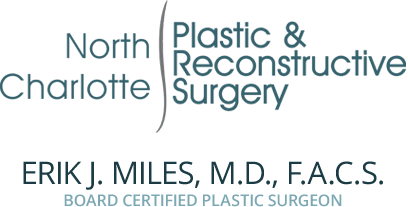What makes a laser “fractional”?
What makes a laser “fractional”?
Charlotte laser skin resurfacing
Laser skin resurfacing is a powerful treatment modality, which can be used to address a number of different skin concerns. This is a highly customized procedure, with many different options available to tailor the procedure to specific needs.
One laser treatment option is called a “fractional” laser treatment. This is sometimes called a “fractionated” laser treatment, which means the same thing. What is a fractional laser treatment? What types of skin issues is it best for? How can you know whether to choose a fractional laser treatment or another type?
A fractional laser affects only a certain fraction of the skin’s surface
With a traditional laser treatment, the laser energy is applied across the entire surface of the skin equally. When this type of laser is used at a higher power, it can produce significant results, but it tends to produce significant side effects, including swelling and peeling. Using the laser at a lower power avoids these side effects, but may not be able to penetrate deeply enough into the skin to achieve the results that you’re looking for. Because structural proteins like collagen and elastin are mainly found in the dermis (the deeper layer of the skin), it’s important for the laser to be able to reach these areas in order to increase the production of these proteins.
With a fractional (or fractionated) laser, the laser energy is only applied to specific areas, rather than to the entire skin’s surface. The laser is spread out into discrete “dots,” which are the treated areas. Each of these areas is known as a “microthermal zone,” or MTZ. The areas of skin between the MTZs remains unaffected.
In each of the microthermal zones, the skin tissues experience heating. This is what stimulates the skin’s healing process and increases the production of collagen and elastin. Cells from the areas in between the zones are able to help support the healing process. This means that the healing process is much easier. In fact, this is sometimes known as the “lunchtime laser” treatment, because it doesn’t generally require much downtime for recovery.
The CoolPeel laser that we use in our office also allows for very detailed control over the pulse time and energy delivered during the laser treatment. This also helps to minimize downtime, as we can use exactly the right amount of laser energy to stimulate your skin’s healing process without causing too many side effects.
What types of skin issues is a fractional laser treatment used for?
Fractional lasers affect both the surface layer (the epidermis) and the deeper layer (the dermis). This gives them the ability to treat a wide variety of skin issues. Some of the concerns that we may use a fractional laser for include:
- Fine lines and wrinkles
- Pigmentation changes
- Uneven skin texture
- Sun damage (such as “sun spots”)
- Scarring (including acne scars)
It’s important to keep in mind that the fractional laser only affects a certain proportion of the skin’s surface. This does limit its ability to address certain issues. For example, deeper wrinkles may be better treated with a traditional laser, which can stimulate collagen production throughout the entire dermis instead of a portion of it.
Charlotte laser skin resurfacing
If you’re considering laser skin resurfacing as an option, then your next step is a consultation with a qualified professional. If you’re in the greater Charlotte area, please schedule a consultation with Dr. Miles or his certified staff. After examining your skin and learning about your goals for your appearance, they’ll be able to let you know what results you could likely expect from your various laser treatment options, and recommend the best option for you.
Dr. Miles can also talk to you about other nonsurgical options (such as a chemical peel or injectables) that might help to achieve the results you’re looking for. In some cases, a facelift may be a great option to consider, and he’ll discuss this with you as well if he thinks it may be beneficial for you. Please contact our front desk to schedule your appointment.


